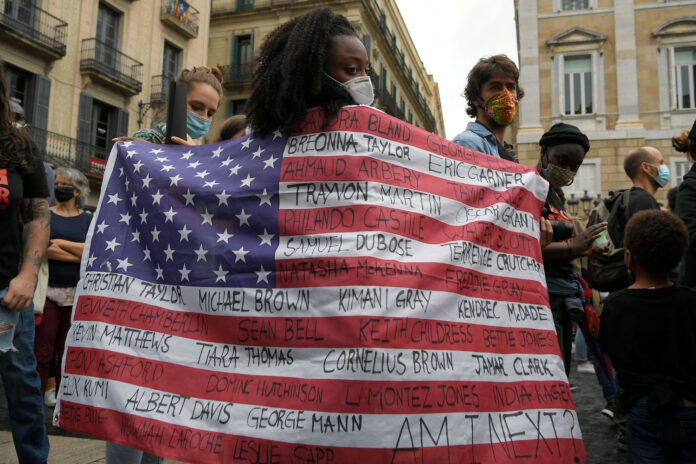Author: Jessica Murrey
Affiliation: Foreign Policy
Organization/Publisher: Foreign Policy
Date/Place: June 20, 2020/USA
Type of Literature: Article
Word Count: 1809
Link: https://foreignpolicy.com/2020/06/20/americas-identity-crisis/
Keywords: Identity, America, White Americans
Brief:
In this article the author tells her story about growing up Black in southern Oregon. A child of a single mom, the author was raised by a White family in a White community where the privileges afforded to White Americans were seen as the norm. Due to her upbringing, she was influenced by the nationalist narrative. As she grew older, she realized how society positioned her due to the color of her skin. She understood that she had to compensate far more than her White counterparts to fit into their society. This was solidified once she learned historical events and tragedies that were kept out of her school curriculum; due to this, she re-evaluated all of the values she grew up with. The author suggests that the US government, establishment, and public are now facing the problems they tried to push under the rug. The author also recognizes that the problem of racism doesn’t entirely rest on the government but that people are also culprits. The author recounts her experience as a volunteer for a peace-building organization where she traveled to different parts of the world to recount the stories of tragedies that took place in these countries. She developed a counter-hate approach called the “tattoo method,” where instead of forcing everyone to adopt one identity, she believes that everyone should cling to their identity & make it their own. She uses the tattoo analogy where a tattoo artist draws what the client wants. However, she explains the complexity of the problem by outlining Myanmar’s multi-ethnic structure and the genocide it has caused. The author gives examples from her work, including having worked in Myanmar for a TV series about a multi-racial soccer team and having to alter the messaging in the series to have it resonate with the audience. She has conducted similar exercises in Columbia as well. She states that nothing will change until people acknowledge the ongoing oppression of Black people.
By: Taqwa Abu Kmeil, CIGA Research Assistant




